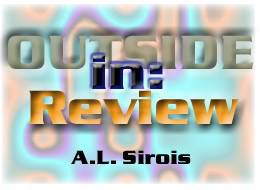|


VIRTUAL HISTORY
Edited by Niall Ferguson
Papermac Books (an imprint of Macmillan)
Paperback version published 1998
Buy the Book.
The concept of alternate history has been a part of the SF field pretty much ever since there was an SF field. Most readers can name two or three alternate history books without giving the matter any thought at all. In contemporary SF, Harry Turtledove is doing so good work carving out a niche for himself with his alternate takes on the US Civil War and WWII. Long-time readers will point to classics like Dick's THE MAN IN THE HIGH CASTLE and Moore's BRING THE JUBILEE, among many, many others.
VIRTUAL HISTORY, however, is what happens when real historians get hold of the idea of alternate history.
Niall Ferguson is something of an enfant terrible in the field these days. He's smart and prolific, and has a genuine historian's love of exhaustive facts and minutiae. He's gathered together several more or less like-minded colleagues and has had them attack the underpinnings of Twentieth Century culture in this book that must seem, to them, like a busman's holiday.
It is precisely because historians don't much like to engage in what they consider idle speculation that this whole volume seems a little tentative. After justifying his idea in a long prolog that evokes chaos theory and other of-the-moment ideas (and which also looks down its nose at SF, including THE MAN IN THE HIGH CASTLE), Ferguson clears the stage for the first essay. By John Adamson, it is engagingly titled ENGLAND WITHOUT CROMWELL: What if Charles I had avoided the Civil War? (While reading this piece, all I could think of was John Cleese warbling about Oliver Cromwell, which is certainly not what Ferguson had in mind. But there it is.)
Which ought to give you an idea of one of this book's biggest flaws, from an American point of view: Ferguson and most of his colleagues in this project are English. Most of the book, therefore, deals with British history, which is a lot longer than ours and even more intricate because of all this nonsense revolving around royalty and whatnot. This stuff can be tough going for Americans.
The essays consider, variously, what might have happened had there been no American Revolution, what might have been the result for Ireland and England had Home Rule been enacted in 1923, the results of Britain staying out of WWI, how England would have dealt with a Nazi invasion in 1940, what the impact on Europe would have been if Germany had defeated Russia in WWII, how America and Russia might have interacted had there been no Cold War, and the state of the world today had Communism not collapsed.
Now, no one would be able to fault Adamson or any of these other Brits (the lone woman, Dian Kunz, who takes up the task of imagining what might have happened had Kennedy not been assassinated, is also the lone American) when it comes to marshalling facts. The problem with all those facts is, by the time most of these essays finish giving us an understanding of how things happened in real history, they have little time or energy available for what Ferguson calls "counterfactual" presentation. In other words, despite the impressive breadth of scholarship on display, there's a paucity of imagination to it all.
Which would not, of course, be recognized as a defect by any historian. Few of them have much imagination, nor do they want it. All they want is to elucidate facts for themselves and for others, as dispassionately as possible, and get on with it. Another point, minor but perhaps worth noting: They make no provisions for breakout technologies such as computers, antibiotics or mass production – all of which have certainly had some impact on the course of history.
The resulting volume is fine for historians, but makes for awfully dry reading for those of us looking for some excitement and glitz.
But that's the point. The book is meant as an intellectual exercise, not as escapist literature. On that level, it does manage to raise some interesting points, but ultimately what is happening here is that Ferguson et al are trying to stake out ground more effectively claimed years ago by the adventure writers, who may (or may not) have an historian's eye for detail but know how to engage an audience. While it is true that many SF readers don't give a rat's ass what Cromwell had for breakfast, there are many others who find such details fascinating because they help flesh out a picture of the man. And it's a poor writer who eschews an opportunity to throw in a juicy detail for the sake of adding verisimilitude to his or her tale.
In other words, history can supply us with the facts of a man's or a woman's life – but it takes a skilled writer of fiction to make that man or woman actually come alive. Marion Zimmer Bradley, in THE MISTS OF AVALON, or Caleb Carr, in THE ALIENIST, may not have all their historical facts in strict order, but their characters live and breathe and you care about them.
It's impossible t o end up caring about the people who populate an intellectual exercise. For my money, the only historian who could ever make people come alive was Barbara Tuchman, for whose work I admit a major weakness. No one in Ferguson's collection, not even Ferguson himself, despite his excellent and cogent writing, has changed my opinion.
Buy the Book.
TOP
BACK

Content Copyright © A. L. Sirois 1998-2007 All Rights Reserved.
|